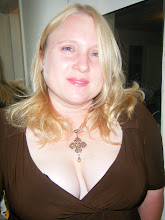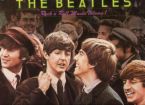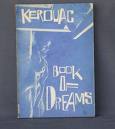 BOOK REVIEW
BOOK REVIEWVANITY OF DULUOZ
by Jack Kerouac
"Vanity of vanities, all is vanity"
Ecclesiastes 1:2
My, my, Jack. What have you done?
The answer, it seems, is "everything under the sun".
This book starts and ends with reference to Ecclesiates, or the "Wisdom of Solomon", from the Old Testament. It shows a Jack who, in his older years, did in fact turn back to his "little lamby Jesus", as opposed to the Buddhism heavily endorsed in the last Kerouac book I reviewed (see Dharma Bums).
It is also the prattle of old and hardened Jack, heavily hitting the sauce during this time and entrenched in the cultural viewpoint of his mother. The book was written in a tone directed towards his third "wifey", Stella Sampas, in an attempt to show her where he had been and how he got to where he is now. The story is a recap of Jack's "formative" years, covering time periods from his early years as a student and athlete in Lowell, MA, to his time in the Merchant Marine, and ending with the death of his father in 1944. It is essentially the description of the events that led him to find his calling as a writer.
It is also the most boring and tedious work I have read of his, and runs a close tie for the most difficult Kerouac book for me to finish (up there with Visions of Cody). I would not recommend this book to anyone who was not a serious Kerouac fan like myself. In truth, it was only my desire to know all about his life and read every line he has written that compelled me to finish this book. I kept wanting to put it down in place of another fiction novel.
The book is somewhat interesting in that it includes details from Kerouac's life history not found in other places. Some of the stories from the Merchant Marine days are actually fascinating, including his travel to exotic locations. It amused me to read stories about him leaving the boat when he wasn't supposed to to get drunk somewhere, sometimes losing all his money in the meantime and having complicated scenarios where he has to somehow get the money to get back to the boat. To know about what inspired him to write before he wrote anything that amounted to much was engaging, and I would love to get my hands on a copy of The Sea is My Brother, or the manuscript he lost in a taxi cab that was never recovered or published.
Another facet of the book that I found interesting as well is how he refers to his friends, or doesn't, in this book. By this time in Jack's life, his friendship with Allen Ginsberg had lasted through several decades. Ginsberg was, I believe, instrumental in getting Jack published and getting hi m literary attention. Even though their friendship had suffered a cooling off period due to Kerouac absorbing some of his mothers anti-sematicism, Ginsberg was still victim to phone calls in the wee hours of the morning from a drunken Jack. However, Kerouac says very little about Ginsberg in this book, even though this was a significant friendship during this time period, and what he does say is not very nice ("I never really liked him much", also a suggestion that Jack and his first wife felt Allen to be lecherous). The book does, however, wax sentimental about William Burroughs (all these people by pseudonym, of course), who by this point had put Kerouac clean out of his life for all his wine-reeking offensiveness as a friend.
m literary attention. Even though their friendship had suffered a cooling off period due to Kerouac absorbing some of his mothers anti-sematicism, Ginsberg was still victim to phone calls in the wee hours of the morning from a drunken Jack. However, Kerouac says very little about Ginsberg in this book, even though this was a significant friendship during this time period, and what he does say is not very nice ("I never really liked him much", also a suggestion that Jack and his first wife felt Allen to be lecherous). The book does, however, wax sentimental about William Burroughs (all these people by pseudonym, of course), who by this point had put Kerouac clean out of his life for all his wine-reeking offensiveness as a friend.
 m literary attention. Even though their friendship had suffered a cooling off period due to Kerouac absorbing some of his mothers anti-sematicism, Ginsberg was still victim to phone calls in the wee hours of the morning from a drunken Jack. However, Kerouac says very little about Ginsberg in this book, even though this was a significant friendship during this time period, and what he does say is not very nice ("I never really liked him much", also a suggestion that Jack and his first wife felt Allen to be lecherous). The book does, however, wax sentimental about William Burroughs (all these people by pseudonym, of course), who by this point had put Kerouac clean out of his life for all his wine-reeking offensiveness as a friend.
m literary attention. Even though their friendship had suffered a cooling off period due to Kerouac absorbing some of his mothers anti-sematicism, Ginsberg was still victim to phone calls in the wee hours of the morning from a drunken Jack. However, Kerouac says very little about Ginsberg in this book, even though this was a significant friendship during this time period, and what he does say is not very nice ("I never really liked him much", also a suggestion that Jack and his first wife felt Allen to be lecherous). The book does, however, wax sentimental about William Burroughs (all these people by pseudonym, of course), who by this point had put Kerouac clean out of his life for all his wine-reeking offensiveness as a friend.Historically, this book is important in terms of understanding how Jack the boy became Jack the man, who published many novels of importance during his lifetime. However, it is written with little of Jack's usual "poetry-like prose", is missing the language that made his previous books so popular. It is a good story without the narrative and depth to support it. The style is tedious and the tone pretentious, and I would put any other Kerouac book in front of this one as more accurate examples of what I loved about his writing.





 gh Charters. The book is dedicated to Allen Ginsberg, who gave Charters great assistance during the writing of the book, with interviews and unlimited access to his archives and photos.
gh Charters. The book is dedicated to Allen Ginsberg, who gave Charters great assistance during the writing of the book, with interviews and unlimited access to his archives and photos.





















 e you might have been in the same situation before, or felt the same way, and what is he saying about humanity through his individual experience.
e you might have been in the same situation before, or felt the same way, and what is he saying about humanity through his individual experience.


























